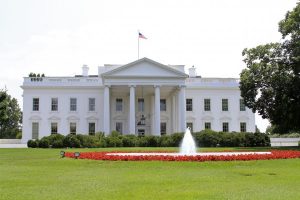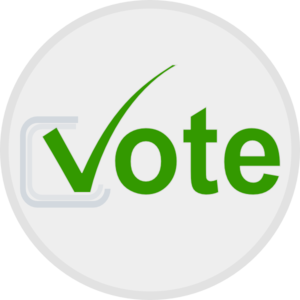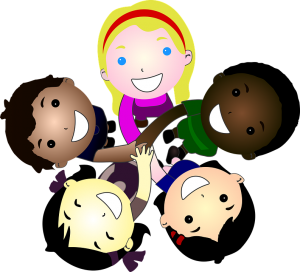For progressives, it is probably not a stretch to say that things in the US have become even scarier, more stressful and more unbelievable than they already were in the Age of Trump. The President, since the release of the Mueller Report, his impeachment, and his acquittal, combined with the undying support he has from most congressional Republicans, has broken even more norms – if not also laws – than he already had.
As we noted way back in August 2017, there are many ways that we Americans can – and should and must – take care of ourselves and participate in acts of resistance against an increasingly autocratic and, frankly, out-of-control White House.  Here we will offer some additional ideas, especially those that are more communal, rather than purely individual. We as individuals can undertake an array of activities and practices that calm ourselves and retain our personal balance, but it is mainly in collective actions that true, positive, lasting change can be made at the societal and national level.
Here we will offer some additional ideas, especially those that are more communal, rather than purely individual. We as individuals can undertake an array of activities and practices that calm ourselves and retain our personal balance, but it is mainly in collective actions that true, positive, lasting change can be made at the societal and national level.
Before we offer a few suggestions, let us tackle a fundamental societal and psychological point. Many of us, for whatever reason, and especially in these challenging times, feel paralyzed – perhaps even traumatized – by current events and believe that our actions cannot make any difference. Many of us have a recurring mental thought pattern that goes something like this: “Every time I turn around, something else awful happens. I feel like I’m constantly being punched in the stomach. Things are so bad that nothing I do or say will help. I’m only one person.” This attitude can lead not only to despair and paralysis but also clinical depression.
 It is thus very important to try to dispel these negative “racing thoughts,” if at all possible. When we realize that minuscule numbers of votes – just to take one example – frequently decide important elections, we can perhaps start to produce a different mental script, one that shouts, “I can make a difference! I can do something that matters!”
It is thus very important to try to dispel these negative “racing thoughts,” if at all possible. When we realize that minuscule numbers of votes – just to take one example – frequently decide important elections, we can perhaps start to produce a different mental script, one that shouts, “I can make a difference! I can do something that matters!”
So, now that we choose to empower ourselves and tell ourselves that our actions can – and do – matter, let us offer a few suggestions of mainly collective actions that we can consider toward the goal of improving our society and nation.
- Tap into community groups that focus on action, even if you can only give a few hours a week or month. Faith in Action is one such long-established group, with campaigns, programs and federations throughout the country.

- Participate in local voter registration drives and/or find ways to help elderly or disabled voters, or those who have transportation challenges, pick up and turn in ballots (during early voting periods) or get to the polls on election day (don’t forget primaries!).
- Some communities now have Circles of Support and Accountability (CoSA), which address the area of criminal justice. According to the National Reentry Resource Center, the CoSA “model focuses on the safe reintegration of people returning home from incarceration—usually high-risk, high-needs people convicted of a sexual offense. These ‘circles’ are volunteer-driven.” The model “has provided hope that communities can assist in risk management.” Programs based on the CoSA model have found success throughout the US.
- Many local communities constantly seek non-elected volunteers for government-related committees; Area Agencies on Aging, which are supported by the federal Older Americans Act and found in every community or region, is one example. In my small, rural town, we find openings on such positions as the Tree Board, the Arts Committee, the Skatepark Committee, and the Cemetery Committee.
 The names of some of the committees may sound silly or trivial, but these committees and boards probably would not exist if they were not important in some way to the community. Getting involved in even a small way supports and can make a real and lasting difference to our fellow citizens.
The names of some of the committees may sound silly or trivial, but these committees and boards probably would not exist if they were not important in some way to the community. Getting involved in even a small way supports and can make a real and lasting difference to our fellow citizens. - The United Way has been around for over 125 years. The United Way is “engaged in nearly 1,800 communities across more than 40 countries and territories, where people are powering big ideas and big action by donating, volunteering and speaking out.” The original founders in Denver conceived of a nonprofit organization “to collect the funds for local charities, to coordinate relief services, to counsel and refer clients to cooperating agencies, and to make emergency assistance grants for cases that could not be referred.” Ways to contribute abound.
Needless to say, there are many other nonprofits, charities, religious organizations, and service groups that can be identified. (To find some in your community, try putting terms like “public service groups in US” in your browser.) For better or worse, the US has an abundance of such groups for the simple reason that, for the most part, we do not serve our citizens in the same way, or to the same extent, that other industrialized nations do through taxation and government programs.  Until we get to that point (and we may, to some extent, if more Democrats are elected in the next few cycles – because Americans are slowly learning that progressive taxation and regulations are what actually work to create peaceful, productive societies), we can find many ways to contribute our time, talents and skills to the common good. Making such contributions often are accompanied by the added “bonus” that we begin to realize that our individual actions, especially when done in conjunction with like-minded people, do make a difference.
Until we get to that point (and we may, to some extent, if more Democrats are elected in the next few cycles – because Americans are slowly learning that progressive taxation and regulations are what actually work to create peaceful, productive societies), we can find many ways to contribute our time, talents and skills to the common good. Making such contributions often are accompanied by the added “bonus” that we begin to realize that our individual actions, especially when done in conjunction with like-minded people, do make a difference.
Onward and upward!
Suggested Reading
Hill, Steven. Europe’s Promise: Why the European Way is the Best Hope in an Insecure Age. Berkeley and Los Angeles, CA: University of California Press, 2010.
Lakey, George. Viking Economics: How the Scandinavians Got It Right – and How We Can, Too. Brooklyn and London: Melville House, 2016.
Partanen, Anu. The Nordic Theory of Everything: In Search of a Better Life. New York: HarperCollins Publishers, 2016.
Reich, Robert B. Saving Capitalism: For the Many, Not the Few. New York: Vintage Books, 2015.
